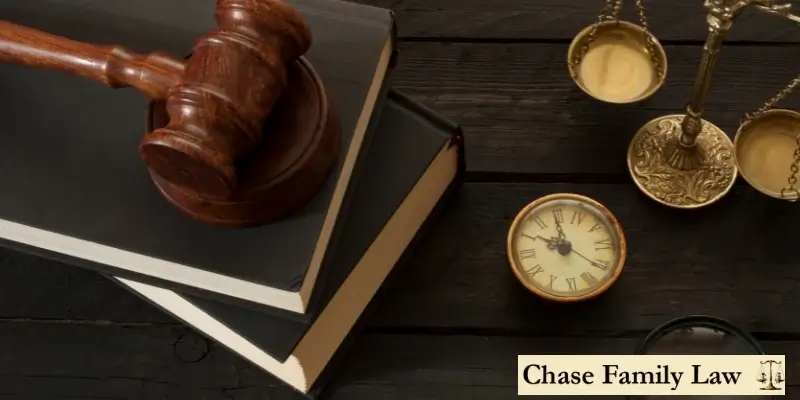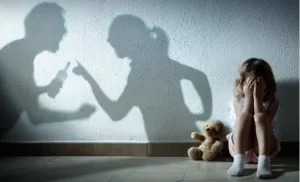Hanford Domestic Violence Lawyer
Hanford Domestic Violence Attorney
Being involved in and trying to keep yourself safe from an abusive relationship is a scary and stressful situation. Whether the abuse comes from a spouse, ex-partner, or close relative, domestic violence is serious, and you deserve help. At Chase Family Law, our Hanford domestic violence lawyer understands how difficult it is to reach out and take that first step toward seeking help. Know that legal help is available to keep you and your family safe.

What Is Domestic Violence?
Domestic violence is abuse or threats of abuse when the person being abused and the abuser are or have been in an intimate relationship (married or domestic partners, are dating or used to date, live or lived together, or have a child together). It is also when the abused person and the abusive person are closely related by blood or by marriage.
The domestic violence laws say “abuse” is:
- Physically hurting or trying to hurt someone, intentionally or recklessly;
- Sexual assault;
- Making someone reasonably afraid that they or someone else are about to be seriously hurt (like threats or promises to harm someone);
- Behavior like harassing, stalking, threatening, or hitting someone;
- disturbing someone’s peace; or
- destroying someone’s personal property.
The physical abuse is not just hitting. Abuse can be kicking, shoving, pushing, pulling hair, throwing things, scaring or following someone, or keeping someone from freely coming and going. It can even include physical abuse of the family pets.
Importantly, domestic violence does not have to be physical. Abuse can be verbal (spoken), emotional, or psychological. One does not have to be physically hit to be abused. Often, abuse takes many forms, and abusers use a combination of tactics to control and have power over the person being abused.
Call Chase Family Law
Family Law Made Simple
Civil Law v. Criminal Law
In a civil domestic violence action, a party requests protection from an abuser, most often in Family Court. The Family Court cannot send that person to jail for committing a crime – that is the responsibility of the criminal justice system. However, if the abuser violates the civil court order, the Family Court can send that person to jail for that violation.
The criminal law system handles all cases that involve violations of criminal law such as harassment, assault, murder, theft, etc. A criminal complaint can be filed as the result of an act of domestic violence. Unlike in civil court where the victim initiates the case, in criminal cases the prosecutor (the county’s District Attorney) is the one who has control over whether charges are filed. On some occasions, the victim does not want to “press charges.” However, the prosecutor makes the ultimate decision as to whether or not to proceed, and often proceeds against the wishes of the victim.
Domestic Violence Restraining Orders
A domestic violence restraining order is a court order that helps protect people from abuse or threats of abuse from someone they have a close relationship with. A domestic violence restraining order can be requested if domestic violence has occurred between two or more parties. A parent can also file a restraining order on behalf of a child. If a child is 12 or older, he or she can file the restraining order on his or her own.
When an incident of domestic violence occurs that involves police intervention, a police officer will often offer the victim an Emergency Protective Order. This order – obtained by telephone from a judge – is in effect for a very short time, typically 5 days. The order serves the same function as a domestic violence restraining order (“DVRO”) and is intended to bridge the gap between the time of the violence and the time it takes to obtain a domestic violence restraining order from a court.
If a victim receives an Emergency Protective Order (“EPO”) but does not obtain a DVRO before the EPO expires, the victim will have no protection until the Family Court issues a DVRO. It is important, therefore, for a victim who wants continuing protection to take action immediately so as to avoid this lapse in protection.
Police officer involvement is not required, however, for a victim to pursue a DVRO. The victim may decline to involve law enforcement and, instead, proceed directly to the Family Court for assistance. In fact, this is the most common approach, as most victims do not feel strongly that the matter rises to the level of requiring criminal charges, but nonetheless believe that they need protection from the abuser.
A DVRO is obtained by submitting an application to a court in the county where the act(s) of domestic violence occurred or where the alleged abuser resides. The application can be made (and usually is) without providing any advance notice to the other party. The court considers the application in the absence of any input from the other party, and decides whether to issue a temporary order.
However, because the temporary order is issued without affording the other party an opportunity to be heard, the court will schedule a hearing fairly quickly, usually within 20-25 days. At the hearing, the court will then consider evidence presented by both parties and decide whether to issue a Restraining Order After Hearing, or to deny the request. A request that is denied when originally submitted can be granted at the hearing; and, likewise, a request originally granted can be denied at the hearing.
While it is possible to obtain a domestic violence restraining order without an attorney, the process can be complicated and scary. The hearings are genuine trials, with the parties expected to present testimony and other evidence in accordance with the requirements of the law. It can be particularly difficult for a party to proceed without an attorney if the other party has an attorney, since that attorney will be familiar with the rules of evidence and will act aggressively to prevent a party from making his or her case to the judge.
Additionally, domestic violence restraining orders have serious implications beyond controlling the conduct of the parties towards each other. They can affect employment, the ability to own or possess firearms, the ability to attend a particular school or church, etc. They can have an adverse impact on any ongoing criminal proceeding, and even greatly affect the right to receive or request spousal support. For this reason, a request for a restraining order should never be taken lightly.
As an attorney with more than 30 years of experience, Brian N. Chase has handled many hundreds of domestic violence matters on behalf of both victims and alleged abusers. As an expert in Family Law, he understands the impact these proceedings have on both parties works daily to protect his clients’ interests aggressively, but also with sensitivity towards the many issues these matters raise within a family unit.
Can Domestic Violence Harm a Child Custody Case in Hanford?

In a child custody case in the state of California, all decisions regarding the custody of the involved children are made based on what the judge determines to be in the best interest of the child. Children have a right to be free from abuse, and living in a home with any kind of domestic violence is detrimental to their well-being. Because of this, even the accusation of domestic violence can have an impact on a child custody case.
When a judge is reviewing a child custody case, they will consider a number of factors to determine what arrangement would be in the child’s best interest. One of these factors is any history of abuse from either parent against the following individuals:
- A child who is related to the parent, including a stepchild, or has been in that parent’s care, even temporarily
- The other parent of the child
- The parent of the parent in question, or the grandparent of the children involved
- An individual who lives with or has been in a relationship with the parent
The judge will also take into consideration the amount of contact a child has with their parents and the nature of that contact. They may also take into account if one parent has left the home due to acts or threats of domestic violence from the other parent. If there is a protective order already in place that impacts the parents or the child, the courts will typically avoid awarding a custody arrangement that goes against this order.
Can Those Accused of Domestic Violence Still Get Child Custody?
If an individual is accused of engaging in any act of domestic violence against certain victims, the courts will likely presume that it is not in the best interest of any child involved for the abusive parent to receive custody. However, the accused parent may be able to overcome this ruling with evidence demonstrating that it would actually be in the child’s best interest for them to receive some form of custody.
In these cases, a judge can take into consideration the following circumstances:
- Whether the alleged abuser has completed a batterer’s treatment program successfully, along with a substance abuse program or parenting class where appropriate
- Whether the alleged abuser is on parole or probation and has met all the necessary requirements
- Whether the alleged abuser has taken part in any further kind of domestic violence
In certain situations, a judge may still award custody to an individual accused of domestic violence only in cases where they believe the child’s health, safety, and overall well-being are still intact while with this parent and being with this parent is still in their best interest.
Chase Law Firm: Our Commitment to Family Law
With years of experience in family law, Chase Family Law is committed to offering personalized legal services tailored to the unique needs of each client. Our practice focuses on a wide range of family law matters, ensuring that every family receives the attention and expertise they deserve. We pride ourselves on our compassionate approach and our dedication to achieving favorable results for our clients.
Contact a Compassionate Domestic Violence Lawyer Today
If you feel that you are a victim of domestic violence and would like more information about your rights, Brian N. Chase will offer you a consultation to help you ensure that you make the right decisions for you and your family. Contact our office today to learn more about our services and how we can help you and your loved ones.

